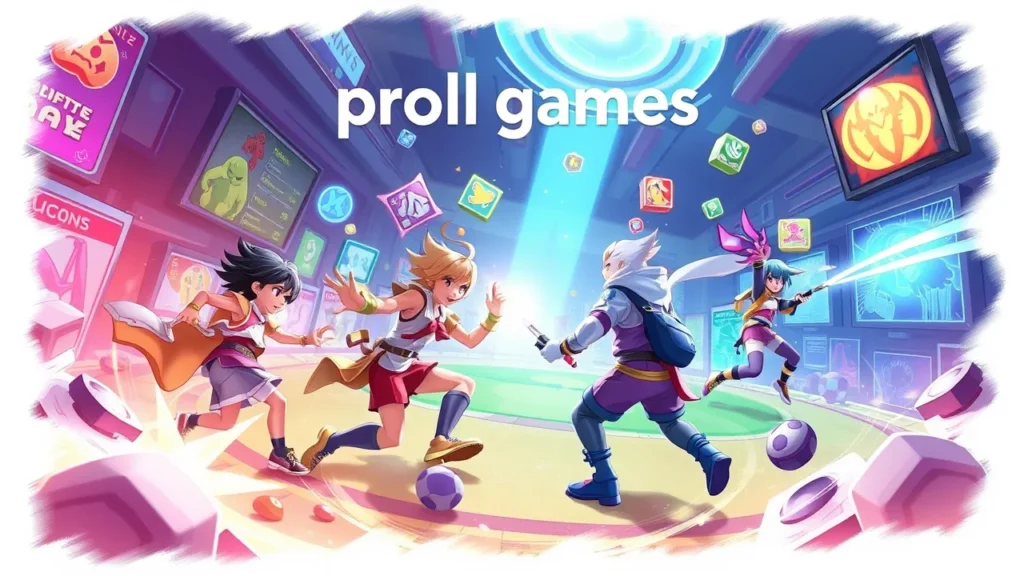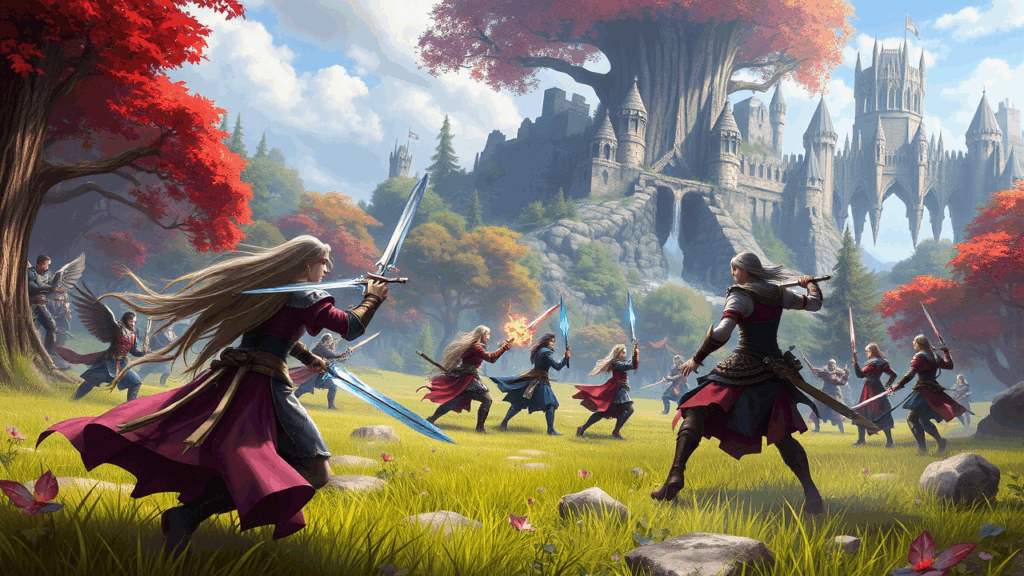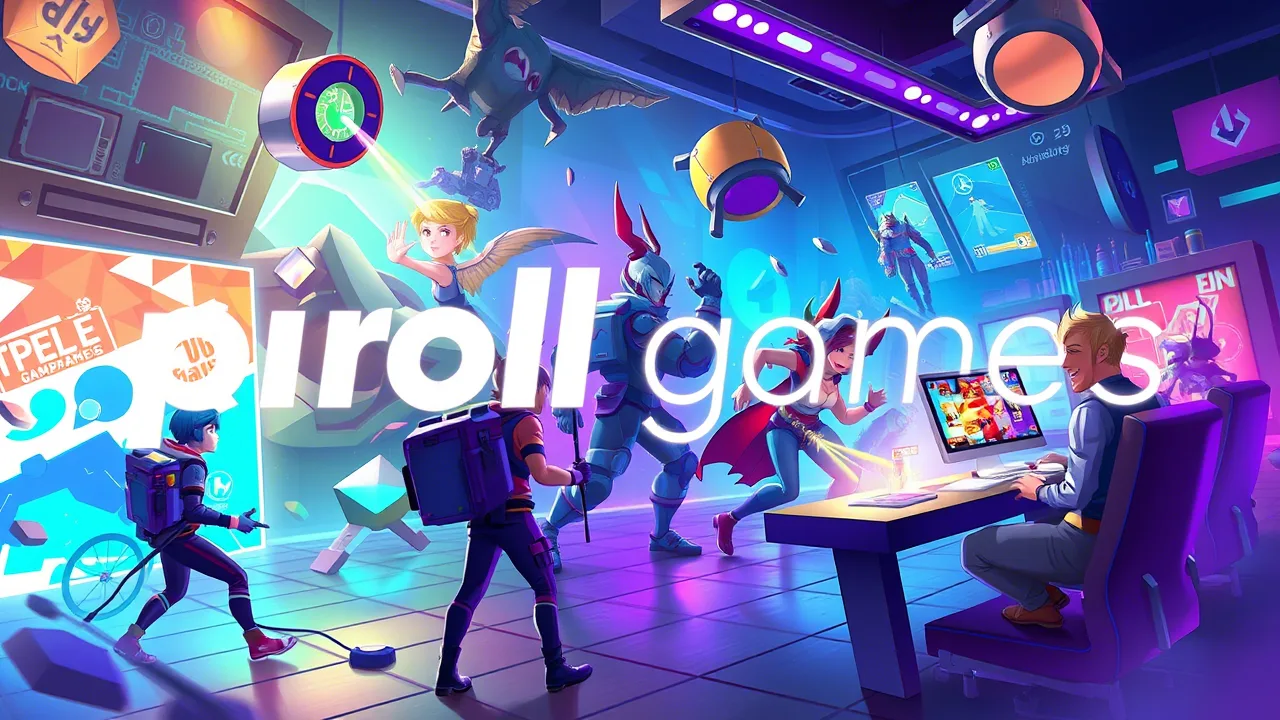When it comes to engaging activities that combine fun, strategy, and skill, few things rival the excitement of proll games. These unique games have captured the hearts of millions worldwide, offering an immersive experience that caters to all ages. Whether you’re a seasoned gamer or someone looking for a new hobby, understanding what proll games are and how they work can open doors to endless entertainment. In this guide, we’ll take you through everything you need to know about proll games, from their origins and types to their numerous benefits and tips for getting started. Let’s dive in!
What Are Proll Games?
Proll games are a fascinating category of interactive games designed to challenge players’ minds, skills, and creativity. Unlike traditional board games or video games, proll games often blend elements of strategy, chance, and teamwork, making them highly versatile. They can be played online, offline, solo, or with multiple participants, depending on the format. The term “proll” itself is believed to originate from a combination of “progressive” and “roll,” highlighting the dynamic nature of these games where rolling dice, spinning wheels, or making strategic moves propel the gameplay forward.
One of the defining features of proll games is their ability to adapt to various themes and settings. From fantasy adventures and puzzle-solving quests to educational challenges and competitive tournaments, there’s a proll game for every interest. This versatility has contributed significantly to their growing popularity across different demographics.

The History of Proll Games
The concept of proll games isn’t entirely new; its roots trace back centuries ago when people first began creating games involving dice, cards, or other randomizing tools. Ancient civilizations like the Egyptians and Romans used rudimentary versions of such games for recreation and decision-making purposes. Over time, these early forms evolved into more structured formats, incorporating rules, objectives, and storytelling elements.
In modern times, the term “proll games” gained prominence with the rise of digital gaming platforms. Developers saw an opportunity to merge classic mechanics with innovative technology, resulting in hybrid experiences that appealed to both casual and hardcore gamers alike. Today, proll games encompass a wide range of formats, including tabletop versions, mobile apps, virtual reality simulations, and even live events hosted by gaming communities.
A notable milestone in the evolution of proll games was the introduction of cooperative play styles. Instead of competing against each other, players could collaborate to achieve shared goals, fostering stronger bonds and encouraging teamwork. This shift marked a turning point in how proll games were perceived—as not just sources of entertainment but also as tools for building relationships and honing life skills.
Types of Proll Games
To truly appreciate the diversity of proll games, let’s explore some of the most popular categories and examples within each type. Understanding these variations will help you choose the right one based on your preferences and objectives.
1. Dice-Based Proll Games
Dice-based proll games rely heavily on rolling dice to determine outcomes. Classic titles like Yahtzee and Farkle fall under this category, but contemporary versions have added layers of complexity. For instance, some modern dice-based proll games incorporate narrative-driven scenarios where players must navigate obstacles, collect resources, or defeat enemies using their rolls.
2. Card-Driven Proll Games
Card-driven proll games involve decks of cards that dictate actions, rewards, or penalties. Games like Magic: The Gathering and Exploding Kittens showcase the potential of card-based systems to create thrilling, unpredictable experiences. Players must strategize carefully, balancing risk and reward while adapting to changing circumstances.
3. Board-Based Proll Games
Board-based proll games bring together physical components like boards, tokens, and pieces to create immersive worlds. Classics like Monopoly and Risk paved the way for newer entries like Settlers of Catan and Pandemic Legacy. These games often emphasize resource management, negotiation, and long-term planning.
4. Digital Proll Games
With advancements in technology, many proll games have transitioned to digital platforms. Mobile apps and PC games now offer sleek interfaces and enhanced features, allowing players to enjoy proll games anytime, anywhere. Popular examples include Among Us, Ticket to Ride, and Genshin Impact.
5. Role-Playing Proll Games (RPGs)
Role-playing proll games immerse players in rich narratives where they assume specific characters with unique abilities. Dungeons & Dragons remains the gold standard in this genre, though countless spin-offs and adaptations exist. RPG-style proll games encourage creativity, improvisation, and collaboration.
| Type of Proll Game | Key Features | Examples |
|---|---|---|
| Dice-Based | Randomized outcomes, simple mechanics | Yahtzee, King of Tokyo |
| Card-Driven | Strategic card usage, dynamic gameplay | Magic: The Gathering, Uno |
| Board-Based | Physical components, tactical decisions | Monopoly, Settlers of Catan |
| Digital | Interactive visuals, global connectivity | Among Us, Genshin Impact |
| Role-Playing | Storytelling, character customization | Dungeons & Dragons, Pathfinder |

Benefits of Playing Proll Games
Beyond the sheer enjoyment factor, proll games offer numerous cognitive, social, and emotional benefits. Here’s a closer look at why incorporating proll games into your routine can be incredibly rewarding.
Enhances Critical Thinking Skills
Many proll games require players to think critically and make informed decisions. Whether it’s calculating probabilities in dice rolls, managing limited resources in board games, or devising strategies in RPGs, these activities stimulate the brain and improve problem-solving abilities.
Boosts Creativity and Imagination
Role-playing proll games, in particular, provide a platform for unleashing creativity. Players are encouraged to invent backstories, design characters, and craft solutions to complex challenges. This freedom fosters imagination and innovation, traits that extend beyond gaming into real-life situations.
Promotes Social Interaction
Proll games are inherently social, whether played face-to-face or virtually. Cooperative games build camaraderie, while competitive ones teach sportsmanship and resilience. Sharing laughter, triumphs, and setbacks during gameplay strengthens interpersonal connections.
Reduces Stress and Improves Mood
Engaging in proll games offers a healthy escape from daily stressors. The focus required during gameplay helps clear the mind, while victories and achievements trigger dopamine release, enhancing overall mood.
Encourages Family Bonding
For families, proll games serve as excellent bonding activities. Parents and children can spend quality time together, learning valuable lessons about teamwork, patience, and fair play.

Tips for Getting Started with Proll Games
If you’re new to proll games, don’t worry—getting started is easier than you might think. Follow these practical tips to maximize your experience and avoid common pitfalls.
Choose the Right Game
Consider your interests, skill level, and available resources before selecting a proll game. Beginners may prefer simpler options like dice or card games, while experienced players might opt for more intricate board games or RPGs.
Learn the Rules Thoroughly
Understanding the rules is crucial for enjoying any proll game. Take the time to read instructions carefully or watch tutorial videos online. If possible, practice with friends who already know the game.
Start Small and Scale Up
Begin with shorter sessions or less complex games to get accustomed to the mechanics. As you gain confidence, gradually move on to longer, more challenging formats.
Embrace Teamwork and Sportsmanship
Remember that proll games are meant to be enjoyable for everyone involved. Focus on having fun rather than winning at all costs. Celebrate others’ successes and learn from failures gracefully.
Explore Online Communities
Join forums, social media groups, or local clubs dedicated to proll games. Engaging with fellow enthusiasts can introduce you to new games, strategies, and perspectives.
Conclusion
Proll games represent a vibrant and ever-evolving world of entertainment that transcends age, culture, and technological boundaries. Whether you’re drawn to their intellectual challenges, social dynamics, or creative opportunities, there’s no denying the profound impact they can have on personal growth and happiness. By exploring the vast array of proll games available today, you’ll discover endless possibilities for connection, discovery, and joy. So gather your friends, roll the dice, shuffle the cards, or embark on epic quests—it’s time to unleash the magic of proll games!
